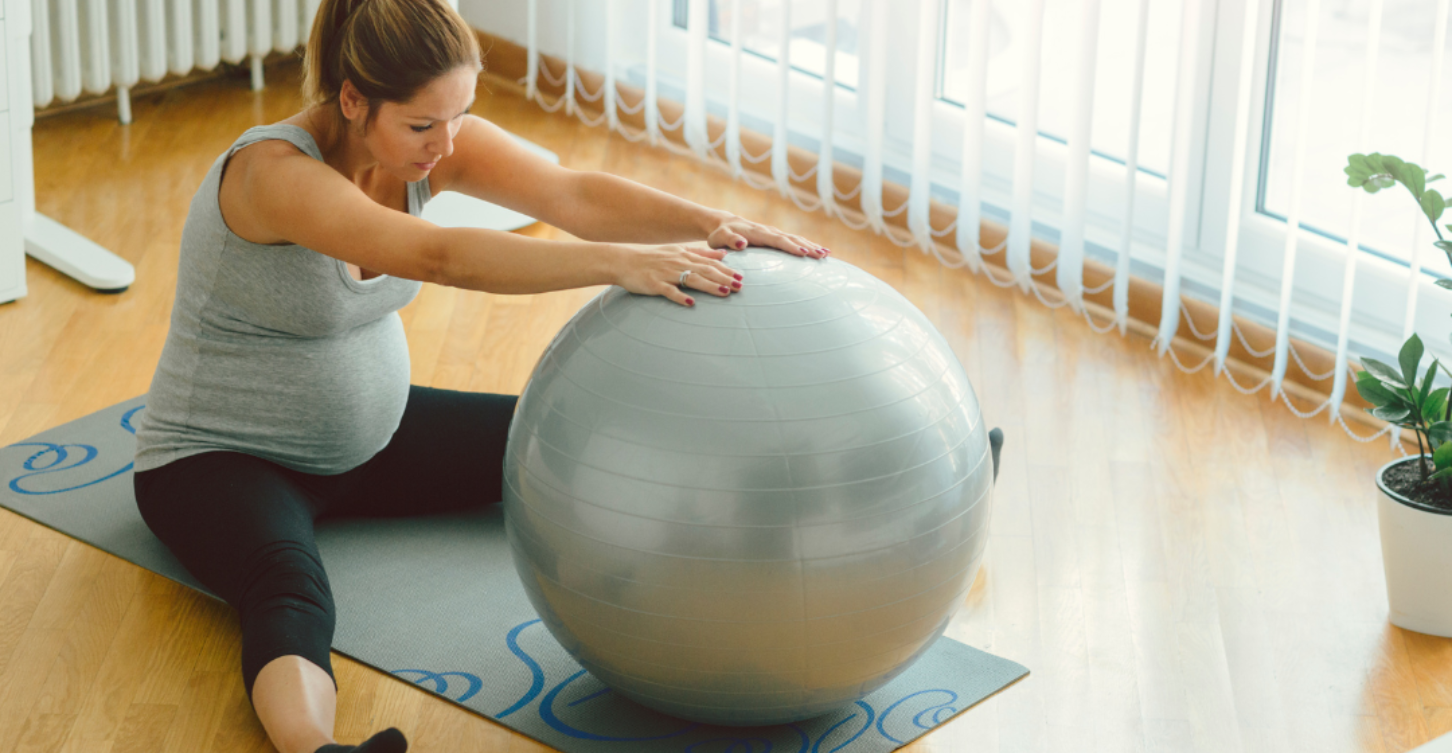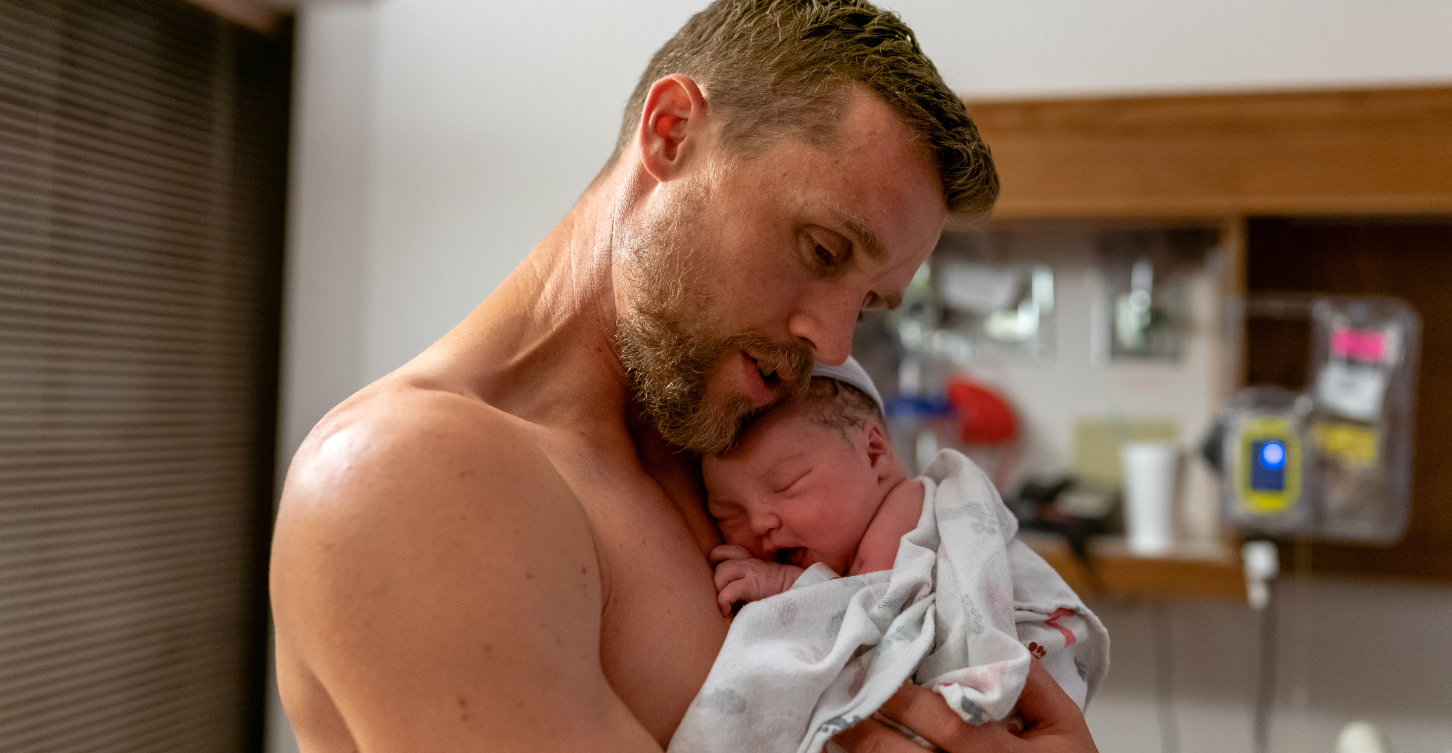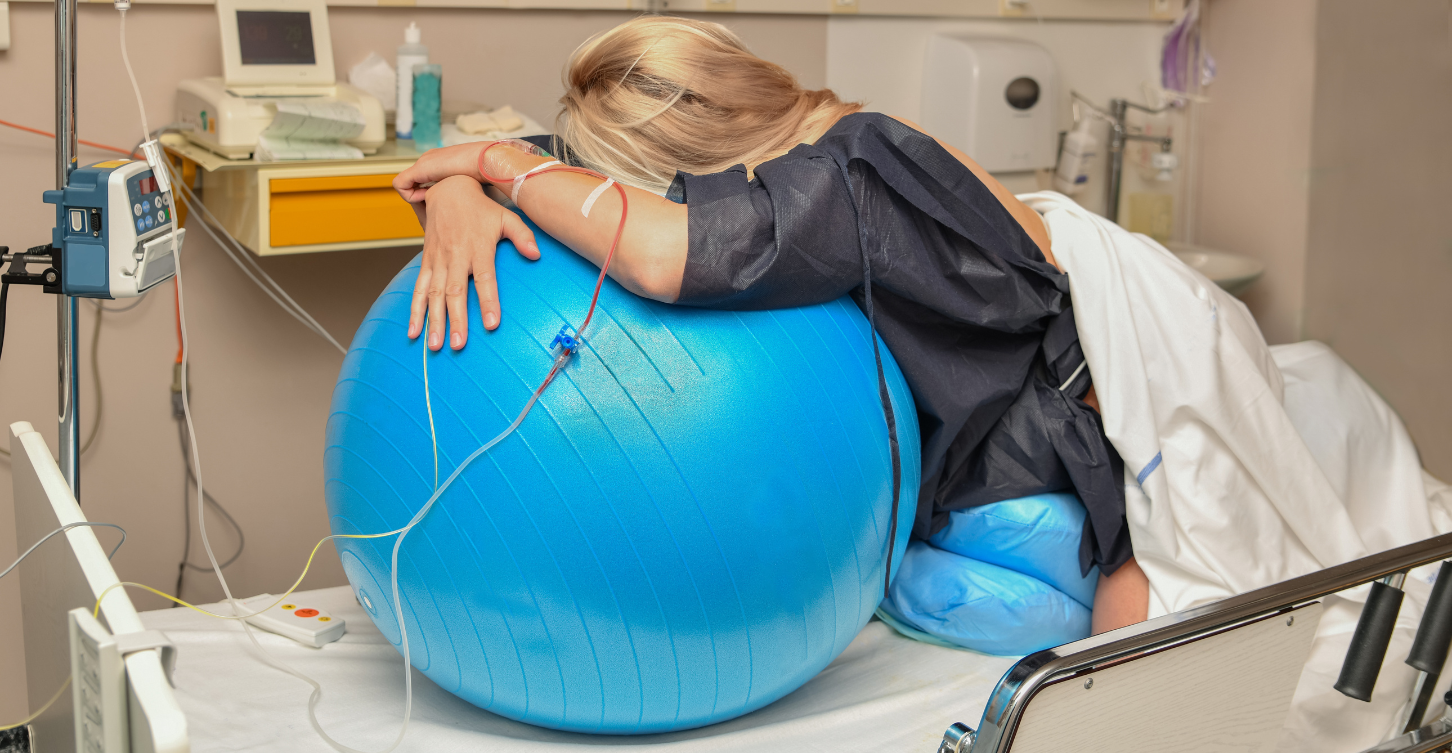Exercise During Pregnancy: Is it Safe?
March 30, 2023
By: Jana Bures-Forsthoefel, MD
Categories: Maternity, Obstetrics Gynecology
If you are pregnant or thinking about having a baby, you might be wondering: Is it safe to exercise while pregnant?
As an OB-GYN at Tallahassee Memorial HealthCare (TMH) and owner of Gynecology & Obstetric Associates of Tallahassee (GOAT), I get this question a lot. I work with women as they plan for pregnancy and prepare for the arrival of their babies, which includes helping them make lifestyle changes to support their and their baby’s health.
Here’s what I tell them: Yes! In most cases, exercise is safe before and during pregnancy. But safely exercising during pregnancy looks different for every mom, and there are some modifications you should make to protect you and your baby during physical activity.
Exercise has benefits when you’re trying to conceive, when you’re preparing to carry a baby and during pregnancy. It keeps you and your little one healthy, supports better sleep and increases your endurance, which can be extremely helpful during physically demanding labor.
The American College of Obstetricians and Gynecologists (ACOG) recommends pregnant women get 150 minutes of moderate physical activity a week. Studies also show that exercise during pregnant could have lasting benefits for babies too.
Here is my advice to help you safely exercise before and during pregnancy.
Exercise While You’re Trying to Conceive
Exercising regularly is one of the most important parts of maintaining your physical and mental health.
In addition to helping you lose excess weight that may inhibit your fertility, regular exercise can help balance hormones, improve insulin and reduce stress, all of which can help boost fertility. Women who participate in regular, moderate exercise get pregnant more quickly than those who don’t.
If you’re not already active but want to start, don’t worry – you don’t have to go all out at the gym to make an impact. Simple exercises that raise your heart rate, make you breathe faster and get warm can all do the trick. Something as simple as a brisk walk is a great place to start.
Other low-impact activities include:
- Hiking
- Gentle bicycling
- Yoga
- Aerobic dancing
- Strength training with light weights
- Tennis
- Golf
- Swimming
Exercise and Pregnancy
Exercising before and during pregnancy is important. Research shows physical activity can help reduce the risk for pregnancy complications such as gestational diabetes and preeclampsia. It can also help relieve discomfort that naturally comes with pregnancy as your body changes.
Pregnancy is tough on the body. It often causes back pain and fatigue. Regular exercise can combat these problems, relieve stress and prepare you for the birth experience. Staying fit during pregnancy will also make it easier to get back into your exercise routine after your little one is born.
There are a host of other benefits to exercising while pregnant, including:
- Better sleep
- Improved posture
- Increased energy
- Improved mood
- Reduced constipation, bloating and swelling
How Much Should I Exercise During Pregnancy?
In general, healthy pregnant women need at least 2.5 hours of moderate-intensity aerobic activity each week. Always talk with your doctor about your specific workout routine, as some exercises may be dangerous for you and your baby.
If you were already active before your pregnancy, you can likely continue to exercise safely while making modifications when necessary. For instance, low-impact activities are preferred over high-impact activities, and you should avoid spiking a heart rate above 140 beats per minute.
If you were not active before your pregnancy, you can certainly start now, but be sure to talk about it with your doctor first. While it is not recommended for you to try any new, strenuous activities while pregnant, activities like walking and swimming are easy and safe to begin while pregnant.
If you have a high-risk pregnancy, your doctor may recommend against exercising until later in your pregnancy or after your baby is born.
What Types of Exercise Are Safe?
While your body creates a safe space for your baby to grow – protecting your baby with the amniotic sac, uterus, organs and the rest of your body – it is important to avoid activities that pose a risk to your baby’s safety. To avoid a potentially dangerous fall, it’s best to choose activities that require little balance and coordination, especially as you get closer to your due date.
The safest exercise activities include:
- Walking
- Swimming
- Stationary bicycling
- Low-impact aerobics
- Using an elliptical machine
- Yoga, with modifications where needed
- Pilates
Sports like tennis and racquetball are generally safe to play during pregnancy, but keep in mind that your balance may change as your body changes throughout pregnancy, affecting your ability to move quickly.
If you’re already an avid exerciser, you may simply need to modify your regular routine during pregnancy. Consider making these adjustments:
- Lower the intensity. If you’re a yogi, try prenatal yoga instead of hot yoga. If you’re a runner, try jogging instead of sprinting.
- Shorten your workout. You will likely get tired more quickly while you’re pregnant. Break your exercise routine up into smaller sections. Instead of taking one 30-minute walk, take three 10-minute walks during the day.
- Use lighter weights. If you like to lift weights, consider doing more repetitions with lighter weights to make your routine easier on your joints.
Helpful Tips for Exercising While Pregnant
Here are some other things to keep in mind while exercising during pregnancy:
- Wear comfortable clothing and shoes.
- Exercise on a flat, level surface.
- Be sure to eat a healthy diet that’s enough to support your pregnancy and your exercise routine.
- Finish eating at least an hour before you exercise.
- Stay hydrated before, during and after your workout.
- Don’t get up too quickly after exercising – you don’t want to get dizzy.
- Always warm up before you begin and cool down when you’re finished.
Which Exercises Should I Avoid During Pregnant?
There are some types of exercise and activity that you should avoid during pregnancy, including:
- Exercising with the goal of losing weight
- Contact sports
- Exercising until you’re exhausted – you should be able to hold a conversation while exercising
- Extensive jumping, hopping, skipping or bouncing
- Any activities that increase your risk of falling
- Lying on your back for an extended period – this may cut off circulation to your legs, feet and your baby
- Exercising in high altitudes
- Twisting your waist while standing
- Exerting yourself in the heat or humidity
- Holding your breath for an extended period
- Deep knee bending
- Full sit-ups
- Double leg raises
- Straight leg toe touches
When is it Unsafe to Exercise While Pregnant?
If you have uncontrolled type 1 diabetes or asthma, your doctor may recommend that you not exercise while pregnant. You should also avoid exercise if you experience bleeding or spotting, or have a weak cervix.
In general, you should also avoid exercise during pregnancy if you have any of the following:
- Hemodynamically significant heart disease
- Restrictive lung disease
- Ruptured membranes
- Premature labor risk
- Incompetent cervix/cerclage
- Persistent second or third trimester bleeding
- Placenta previa after 26 weeks’ gestation
- Preeclampsia or pregnancy-induced hypertension
You should use caution when exercising during pregnancy if you have the following:
- Severe anemia
- Unevaluated maternal cardiac arrhythmia
- Chronic bronchitis
- Poorly controlled type 1 diabetes
- Extreme morbid obesity
- A BMI below 12
- History of an extremely sedentary lifestyle
- Intrauterine growth restriction in your current pregnancy
- Poorly controlled hypertension
- Orthopedic limitations
- Poorly controlled seizure disorder
- Poorly controlled hyperthyroidism
- A history of heaving smoking
If you’re exercising and you experience any of the following, you should take a break:
- Shortness of breath
- Overheating
- Dizziness
- Pain in your back or hips
- A headache that doesn’t go away with rest or Tylenol
- Feelings of cold or clamminess
- Sudden ankle or hand swelling
- Face or calf pain
- Difficulty walking
You should call your doctor if any of these continue after you’ve stopped exercising.
If you experience any of the following, stop exercising and call your doctor immediately:
- Signs of pre-term labor, including contractions, vaginal bleeding, unusual pain in your belly or fluid leaking or gushing from your vagina
- Trouble breathing
- Lightheadedness
- Chest pain
- Heart pounding
- Rapid heartbeat
There’s no doubt exercise can benefit your fertility and pregnancy. They key is being physically active in the way that’s right for you.
You and your doctor are most familiar with your and your baby’s unique health needs. Together, you can decide the role exercise should play in your pregnancy journey.
For more pregnancy and parenting health resources like this, subscribe to our Sweet Peas Pregnancy & Parenting Club.



